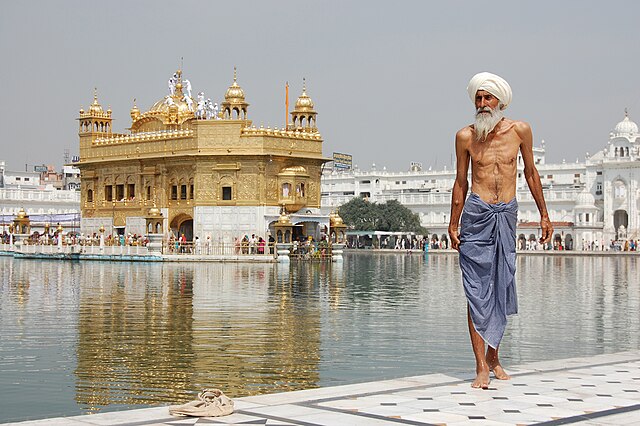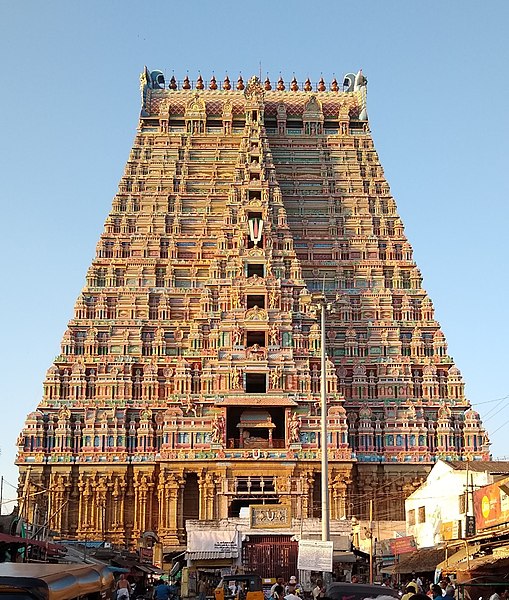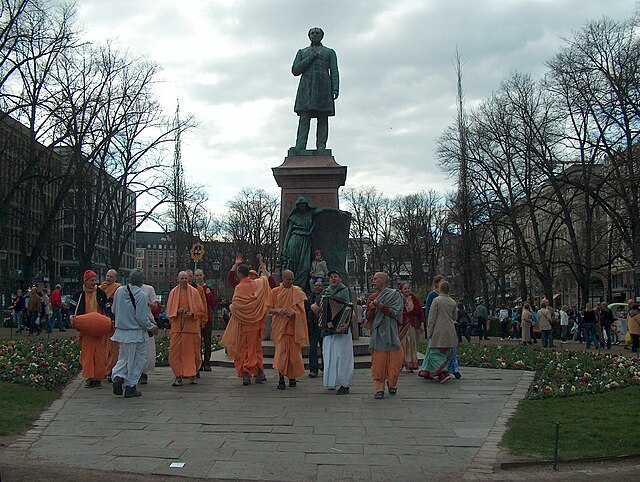Religion in India is characterised by a diversity of religious beliefs and practices. Throughout India's history, religion has been an important part of the country's culture and the Indian subcontinent is the birthplace of four of the world's major religions, namely, Buddhism, Hinduism, Jainism, and Sikhism, which are collectively known as native Indian religions or Dharmic religions and represent approx. 83% of the total population of India.
Goddess Meenakshi with husband Shiva and brother Vishnu inside the Meenakshi Hindu Temple in Madurai, Tamil Nadu
Muslim men in an Islamic library in Delhi
St. Philomena's Cathedral in Mysuru, Karnataka is one of the tallest churches in Asia
A Sikh pilgrim at the Golden Temple in Amritsar, Punjab
Hinduism is an Indian religion or dharma, a religious and universal order by which its followers abide. The word Hindu is an exonym, and while Hinduism has been called the oldest religion in the world, it has also been described as sanātana dharma, a modern usage, based on the belief that its origins lie beyond human history, as revealed in the Hindu texts. Another endonym for Hinduism is Vaidika dharma.
Srirangam Ranganathaswamy Temple dedicated to the Hindu deity Vishnu is said to be worshiped by Ikshvaku and the descendants of (Ikshvaku Vamsam).
Hindus in Ghana celebrating Ganesh Chaturti
Swami Vivekananda was a key figure in introducing Vedanta and Yoga in Europe and the United States, raising interfaith awareness and making Hinduism a world religion.
The Hare Krishna group at the Esplanadi Park in Helsinki, Finland








